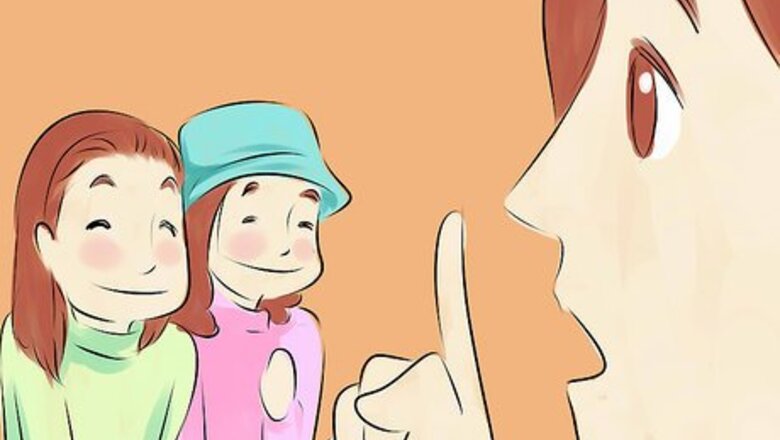
views

Be frank and clear. Adults worry about "social niceties" and tend to beat about the bush when trying to convey messages about rudeness and other unacceptable social behaviors, because they're trying to be polite, save face, not tread on toes, etc. Children don't have this socially-ingrained baggage and are much more amenable to being corrected based on the facts presented to them. They understand direct and clear comments that go straight to the behavior in question. The child knows that he or she is doing something wrong or offensive; part of this is often about whether he or she will get called out on it. And when this does happen, the child will know that the game is up.
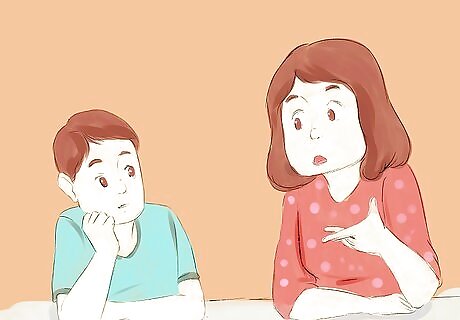
Be polite. Obviously remain polite. But avoid the temptation to sugarcoat the reality; if a child is cursing away, that is the behavior you point out. If a child is digging his or her stylus into your softwood coffee table and leaving holes behind, that is the behavior you point out. Use the word please when asking the child to stop the behavior in question. It both shows your own restraint and kindness in instructing the child, and it also shows respect towards the child and parents. As an added bonus, it demonstrates the value of using manners when instructing others, something the child will pick up on. If you are worried about the parents, manners will win the day. It is hard to fault a polite person, who has relied on respecting each other person involved by acknowledging them and using polite language.
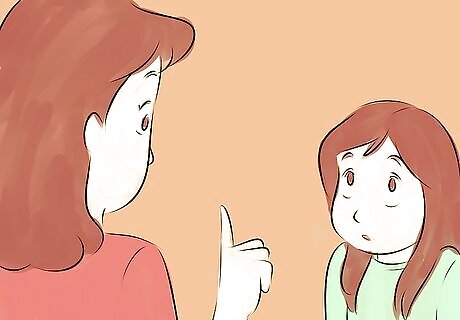
Focus on the behavior, not on the child's personality traits. In other words, don't say: "Johnny, you are such a bad boy, you will end up in jail." Johnny will think, wow, this person is mean and why do they think I am bad?" Instead, it is important to direct your comment at what Johnny is doing that bothers you. For example: "Johnny. That was my favorite economics textbook. It disappoints me that you ripped out pages from it. I now have to buy another one for $89 and I don't have that sort of money. Please put the book down and sit quietly until your visit is over." "Missy, I appreciate that you are a sassy girl with lots of confidence. But it is not okay to call me "@^$^%@&" either to my face or behind my back. That is disrespectful and unkind. It also hurts my feelings. Please speak nicely about me from now on." "Rennie. I understand that you are feeling bored. I can give you some toys to play with from my son's old collection. So, please stop using my glass ornaments as shooting targets and I will fetch those toys for you. While I am fetching them, I am sure your parents will find you a nice and comfy spot to sit down on." (Note how you can also bring the parents in to do their bit.)
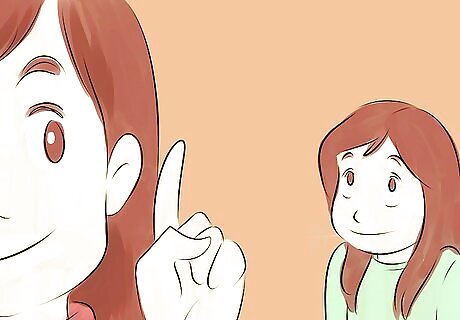
Be amiable. Use a soft and friendly tone. If you sound whiny bossy or angry, the child may cry, get aggressive or throw a tantrum. If the parents are present, it will reflect badly on you and if they're not there, it's likely they'll get the story secondhand. Stick to firm but polite, and treating this whole occasion as instructional and enlightening, not a telling off. Smile after you have instructed the child to do something else. This indicates that "the instruction is done now" and "we're not going to bring it up again".
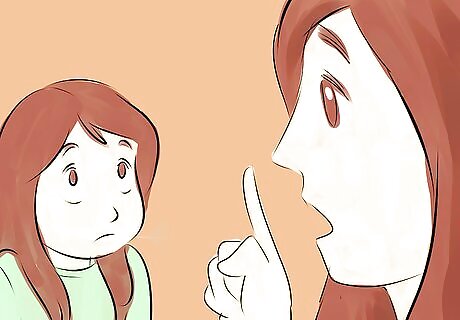
If the child persists in being rude, there are several things you can try. For example: If the child is visiting without parents: Talk to the child quietly but firmly, explaining that you like the child and that he or she is welcome to visit again and play with your children, etc. but that if he or she is not able to respect you/your family/your things, etc., that he or she will not be welcome back if this disrespect continues. Again, name the exact behavior that is bothering you along with how to solve it, and make it clear that once the warning has been given, it won't be raised again unless the child breaches it. If the child is visiting with the parents: Ask the parents to stop the child from misbehaving. For example, you might say: "Jenny and Rick, I love having you over here. I would be happy though if you would kindly ask your child to stop breaking my china ornaments. I have asked him/her to leave the ornaments alone and I have given him/her toys to play with but still the behavior is happening. Please ask your child to stop so that there are no more breakages during this visit. Otherwise, maybe it's time to finish up for today." Many a parent will be mortified enough to respond quickly; if not, then maybe these people are not ideal visitors.

















Comments
0 comment